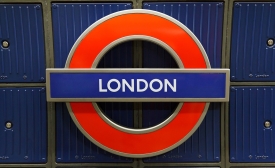Cultural Diplomacy
President Park Geun-hye on Sunday urged Japan to face up to and sincerely atone for its brutalities during colonial rule as a first step to writing a “new history” with Korea for the next 50 years. In her Independence Movement Day address, she called for the two Koreas to meet to discuss reunions of families displaced by the 1950-53 Korean War, while expanding cooperation in sports, culture, arts and humanitarian areas.
Her goal is that art should trickle down to the masses (hence the focus on several outreach programs in recent art fairs), her hope is that the Indian art world believes in itself and her dream is that someday art would be considered an important tool of cultural diplomacy.
The Havana excursion, which Team Coco’s editors are still furiously cutting together, represents a new form for him, an hour-long episode set to air March 4 where he is the perpetual “fish out of water” — an attempt to use comedy as a kind of diplomacy. “Maybe it's not a bad form of diplomacy. Maybe it's not bad to send a comedian over,” Conan said of the thawing U.S.-Cuba relations spearheaded by the Obama administration.

Cultural diplomacy initiatives around the world ease tensions and strengthen bonds between nations with tumultuous diplomatic relations.

CPD is pleased to announce the release of 2015’s first CPD Perspectives on Public Diplomacy, titled "Distinguishing Cultural Relations from Cultural Diplomacy: The British Council's Relationship With Her Majesty's Government."
Britain will mark the recently- declared 'World Yoga Day' by the United Nations with a mega event on June 21, in what may be seen as India's growing "soft power" in the world.
Professor Martha Bayles of Boston College’s College of Arts and Sciences honors department brought together leaders within the film industry for a panel discussion on Feb. 23 about how America is internationally perceived. (...) She explores America’s image abroad and the potentially surprising lack of desirability in America’s freedom and democracy, as well as the distorted portrayals of these qualities among America’s cultural exports.
One Chinese conductor, Long Yu, would like these cultures to hear each other a little more clearly. He's launching a new project to do just that, and it's starting tonight with the New York Philharmonic.







